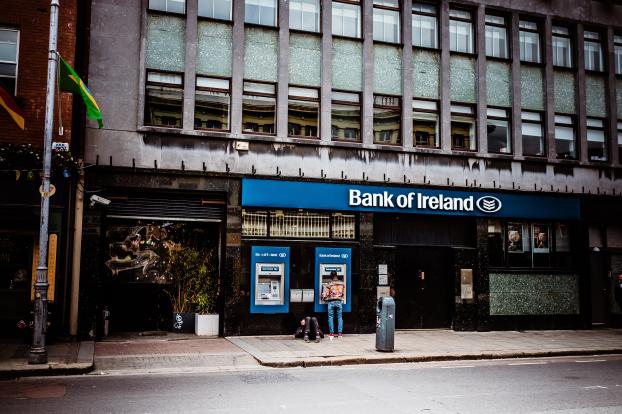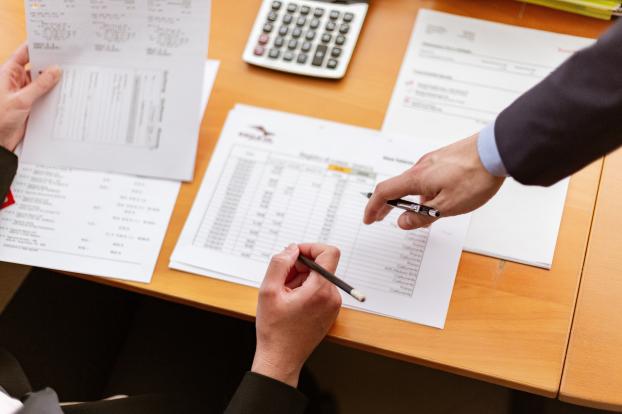At SmartCapitalMind, we're committed to delivering accurate, trustworthy information. Our expert-authored content is rigorously fact-checked and sourced from credible authorities. Discover how we uphold the highest standards in providing you with reliable knowledge.
Do Checks Expire?
In most cases, checks do not expire, as they are financial instruments without a strict end date. However, personal checks do become "stale" after a certain point, usually six months after it has been issued.
Legally, banks are not required to cash or deposit stale checks. Nevertheless, a check becoming stale is not quite the same thing as expiring. Whether or not the cashing institution accepts or refuses a stale check is largely at the bank's discretion.
Understanding Financial Staleness

Most financial institutions around the world consider checks that haven’t been cashed or deposited within six months of their writing to be “stale.” This is mostly a means of consumer protection. When people write a check, they usually assume that the money will be withdrawn by the recipient immediately.
If the check isn’t deposited in a timely manner, the check writer might forget about it and his or her account balance could dip too low. In such instances, the check could bounce, or at least surprise the account holder and negatively impact his or her budgeting and finances.
- Personal checks: The decision of whether to honor a stale personal check is usually a matter of the bank's discretion. If one of the parties involved has been a long-time customer, cashing may not be a problem. In other cases, the check might be held for a “waiting period” or refused outright. A waiting period gives the bank the opportunity to contact the check writer’s financial institution and possibly the check writer, before deciding how to proceed.
- Business checks: Checks written on behalf of corporations are often printed with “invalid after” dates near the signature line. Sometimes the validity period is as long as six months, but it can be much shorter. Sixty days is a typical time frame, particularly for large checks such as payroll contributions or major reimbursements.
- U.S. Treasury checks: Checks issued by the U.S. Treasury, including federal tax refunds, should be deposited or cashed within one year after the issue date.
Old, Unused Checks

If someone has an old, unused check for an account that is still open, it remains valid, regardless of how old the check is or whether it includes outdated personal information, such as a former address. However, anyone with an old checkbook should ensure that the account itself is still open. If the account is closed, the checks become invalid.
It’s also important to be sure that the bank information, such as the bank name and account routing number, has not changed. If the identifying details on the check do not match the account information, the check may be invalid.
Keeping Tracking of Checks
Individuals who have written checks that have not been cashed should monitor their account and keep a record of all the checks they have written.

This will prevent them from spending money that is allocated elsewhere, even if a check recipient hasn't yet deposited the check. Depending on the circumstances, it may be useful to call the individual to whom the check was written to find out why it hasn’t been cashed. Sometimes people just forget, or the check could have gotten lost, in which case a new one can be written.
Stop Payment Orders
If for some reason the check recipient can’t be reached, an account holder may choose to put a "stop payment" order on the outstanding check. Essentially, a stop payment order invalidates the uncashed check.
This can be very useful in cases where checks have been lost or are in danger of being found or altered by someone besides the intended recipient. Anyone who tries to cash a stopped check will be refused. It should be noted that many banks charge a fee for the "stop payment" service.
AS FEATURED ON:
AS FEATURED ON:













Discussion Comments
Thirty dollars and under just let the check ride. It is most likely lost in the mail. Just write another.
Someone stole my checkbook. Can they cash it out?
The "not Valid after xxx days" means nothing as to expiration of a check, business or otherwise.
The fact that personal checks don't expire is really helpful to people like me who don't use them all that often. I can usually go about a year without ordering new checks.
There are a couple of places, like the local water association, that are not set up to accept payments online. I reserve my checks for places like this, and I save a lot of checks by paying with my credit card online whenever possible.
I used to have to order new checks every few months, and that can get expensive. It seems that the price of checks is going up, along with the price of just about everything else these days. It's really a good thing that they don't expire!
@wavy58 – I see why a business would set up an expiration date for a check like this. If someone didn't cash the check until five months after receiving it, this could really throw off their records.
However, I can't imagine anyone waiting months to cash a paycheck! I always deposit mine on the day that I receive it.
Some checks do expire. However, these are usually paychecks or rewards checks.
When my employer sends me my check, there is always an expiration date written on it. It says, “not valid after such and such date.”
I've also gotten rebate checks in the mail that featured expiration dates on them. So, some checks do expire, after all.
Since there's really no such thing as expired personal checks, I always do a stop payment if one of my checks doesn't get cashed after several months. I make sure to contact the person who has the check first, and if they don't answer, I call the bank.
I really hate having to do this, though. My bank charges a stop payment fee of $30. It is awful to have to pay $30 to stop payment on a $12 check, which I've had to do before.
awesome. just what i needed to know.
Thanks for this! It answered my question very clearly.
Post your comments